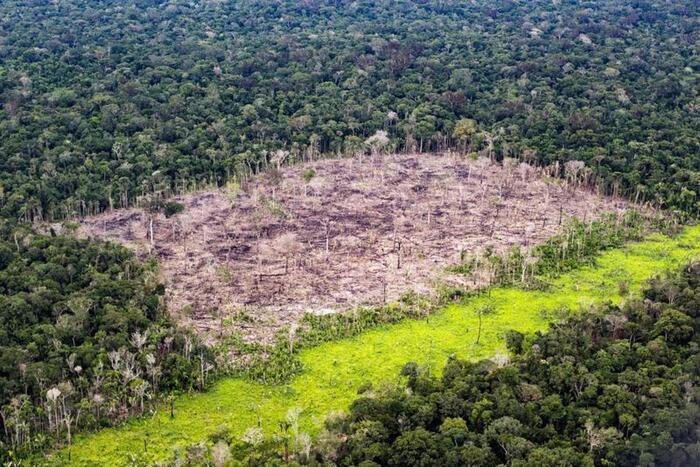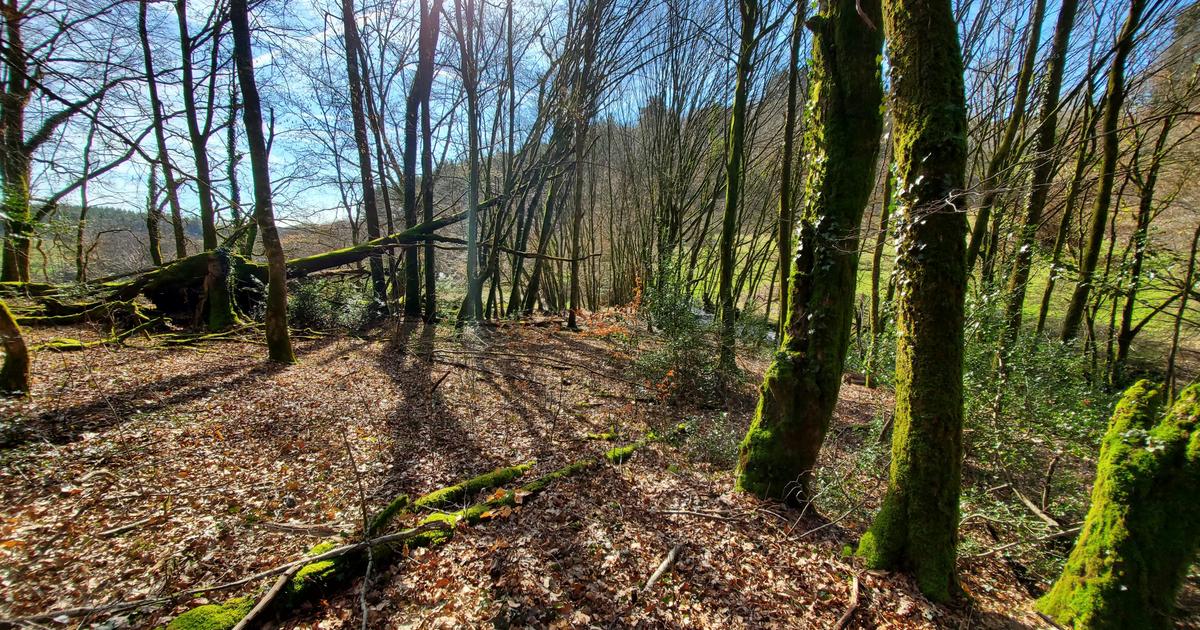Forests are "essential for the health of the planet and for human well-being": they cover almost a third of the earth's surface, act as natural filters providing clean air and water and goods such as wood, fuel, food and fodder, help fight change climatic conditions (even by absorbing one third of greenhouse gas emissions), protect biodiversity, soils, rivers and water basins.
Yet, the FAO recalls, the world has lost 420 million hectares of forest - an area larger than India - since 1990 and deforestation continues at around 10 million hectares per year (2015-2020 average), at roughly the size of Iceland, mainly due to agricultural expansion.
Today is the tenth International Day of Forests, established by the United Nations General Assembly in 2012 to raise awareness of their importance.
The theme for 2022 is "Sustainable forest for people and the planet, responsible consumption and production" recalling goal 12 of the UN 2030 Agenda for sustainable development.
And it is precisely sustainable forest management that can help reduce alarmingly advancing deforestation and degradation, restore degraded landscapes, and provide people with renewable jobs and materials.
The UN website urges the world to implement the recent Glasgow Leaders' Declaration on Forests (the $ 19.2 billion commitment to stop deforestation by 2030) and the
land use and other tools to protect our forests: "It is time to see tangible and credible action on the ground. This means putting an end to unsustainable consumption and production patterns that jeopardize our forests - underlines the Secretary General of the 'UN Antonio Guterres - And it means providing support for sustainable forest management to countries and peoples who need it ".
On the occasion of the International Day of Forests, Guterres calls for "a commitment in favor of healthy forests for healthier livelihoods".
More than half of the world's forests are found in Russia, Brazil, Canada, United States of America, Congo and China, most (45%) in the tropical belt, followed by the boreal one.
"It is time to see tangible and credible action on the ground. This means putting an end to unsustainable consumption and production patterns that jeopardize our forests - UN Secretary General Antonio Guterres underlines - And it means providing management support. sustainable forests to countries and peoples who need them ".
On the occasion of the International Day of Forests, Guterres calls for "a commitment in favor of healthy forests for healthier livelihoods".
More than half of the world's forests are found in Russia, Brazil, Canada, United States of America, Congo and China, most (45%) in the tropical belt, followed by the boreal one.
"It is time to see tangible and credible action on the ground. This means putting an end to unsustainable consumption and production patterns that jeopardize our forests - UN Secretary General Antonio Guterres underlines - And it means providing management support. sustainable forests to countries and peoples who need them ".
On the occasion of the International Day of Forests, Guterres calls for "a commitment in favor of healthy forests for healthier livelihoods".
More than half of the world's forests are found in Russia, Brazil, Canada, United States of America, Congo and China, most (45%) in the tropical belt, followed by the boreal one.
The two largest rainforests in the world are considered to be those of the Amazon and the Democratic Republic of the Congo.
Forests are home to around 80% of Earth's biodiversity, with over 60,000 tree species.
About 1.6 billion people depend directly on it for food, shelter, energy, medicine and income.
The forest sector generates jobs for at least 33 million people and forest products are used by billions of people.
More than half of the world's GDP is estimated to depend on ecosystem services, including those provided by forests, and more than half of the total world population uses forest products other than wood to support their well-being and livelihoods.
Wood is renewable and also helps replace harmful materials such as plastic,
It is also an essential material for making cities greener, stores carbon, requires less energy to produce than many other building materials, and provides good insulation.
Ultimately, the UN believes that it is "essential to consume and produce wood in a more environmentally friendly way for the planet and its inhabitants" and invites us to protect "this easily renewable resource with sustainable forest management".
In Italy, the wooded area has grown by approximately 587,000 hectares in 10 years, reaching today 11 million hectares, and forest biomass has increased by 18.4%, allowing the absorption of 290 million tons of CO2 more.
But in 2021, until the end of the summer, 158 thousand hectares of woods were burned.
Last February in Italy the National Forestry Strategy was published, valid for twenty years, which - explained the Ministry of Agricultural Policies - is an essential tool for outlining national forestry policies in the context of European ones and international agreements but aims at coordination national and regional forestry policies.
According to Ispra data for the Ministry of Ecological Transition, Italian forests will absorb about 20 million tons of Co2 per year in the five-year period 2021-2025.
which - explained the Ministry of Agricultural Policies - is an essential tool for outlining national forestry policies in the context of European ones and international agreements but aims at coordinating national and regional forestry policies.
According to Ispra data for the Ministry of Ecological Transition, Italian forests will absorb about 20 million tons of Co2 per year in the five-year period 2021-2025.
which - explained the Ministry of Agricultural Policies - is an essential tool for outlining national forestry policies in the context of European ones and international agreements but aims at coordinating national and regional forestry policies.
According to Ispra data for the Ministry of Ecological Transition, Italian forests will absorb about 20 million tons of Co2 per year in the five-year period 2021-2025.















